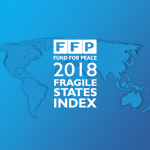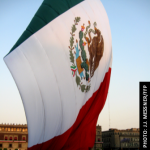It was a rough year for the United States in 2017. It was the country’s worst year for hurricanes – Irma, Harvey, and Maria caused hundreds of billions of dollars’ worth of damage in the Gulf Coast. It was the worst year for wildfires – over a million acres burned in California alone. It was the worst year for mass shootings – hundreds were killed at concerts and churches and schools. It was a pretty bad year for political polarization too, marked by politically charged investigations into Russian external intervention in the democratic process and a series of political scandals involving alleged corruption, criminality, and misconduct at the highest levels of government. Further, mass protests over issues like immigration policy and women’s rights took on greater energy than ever before. But not everything was bad. The economy continued to improve through 2017, with unemployment continuing to drop since it peaked at 10% in 2009 to a low of 4.1%, the best rate since 2000. The stock market also did well throughout 2017, continuing its rise since the crash of 2008-2009.
Author Archives: fundforpeace
Scraping the Barrel: Oil-Dependent Venezuela in Free-Fall
- Friday, 27 April 2018 15:53
- 0 Comments

When the 14-year rule of the populist President Hugo Chávez came to an end upon his death in 2013, Venezuela was already well down the path to instability. Chávez’s death made way for his handpicked successor Nicolás Maduro who, in stark contrast to Chávez’s cult of personality, many Venezuelans have come to fear and loathe.
The Venezuelan economy – which remains heavily reliant on oil exports – was hit sharply by the drop in global crude oil prices in 2013. Without the same capital to line the public coffers for popular social programs, this exposed the vulnerabilities in the Chávez-era economic policies and set the country on a path towards increased unemployment, poverty and inflation. More focused on consolidating executive power than meaningful reform, President Maduro has pushed Venezuela into a dangerously precarious position – from rampant inflation fueled by food and medical shortages, to increased violence and criminal impunity on the streets.
Fragile States Index 2018 – Annual Report
- Tuesday, 24 April 2018 02:34
- 0 Comments

The Fragile States Index, produced by The Fund for Peace, is a critical tool in highlighting not only the normal pressures that all states experience, but also in identifying when those pressures are pushing a state towards the brink of failure. By highlighting pertinent issues in weak and failing states, The Fragile States Index—and the social science framework and software application upon which it is built—makes political risk assessment and early warning of conflict accessible to policy-makers and the public at large.
The Authoritarian’s Playbook: Central Europe’s Slide Toward Illiberalism
- Monday, 23 April 2018 21:42
- 0 Comments

At the beginning of the 21st century, Hungary and Poland were frequently lauded as two of the most successful examples of democratic transitions, emerging from the shadow of communist dictatorships and joining the Euro-Atlantic community through membership in organizations such as NATO and the European Union.[1] Today the two countries are again often mentioned together, but now as vanguards of rising illiberal populism and democratic deterioration. The similar trajectories of the two countries is reflected in the trend of several of the Fragile States Index’s (FSI) component indicators, most notably Group Grievance and Human Rights and Rule of Law.
Resilience Drives a Remarkable Bounce Back for Mexico
- Monday, 23 April 2018 20:27
- 0 Comments

In the previous edition of the Fragile States Index (FSI), Mexico was the most worsened country — a decline in Mexico’s economy, the deteriorating status of refugees, and prevalent political corruption had pushed the country to the 88th position on the FSI in 2017, its worst ranking in over a decade. Indeed, Fund for Peace covered Mexico’s rapid decline in an article entitled, “So Far from God, So Close to the United States: Mexico Most-Worsened in 2017.”
However, in a surprising twist, in 2018 Mexico has recovered to become FSI’s sixth-most improved country overall, showing moderate improvements across nearly every indicator. This dramatic shift is largely attributable to the country’s resilience in the face of worsening U.S.-Mexican relations and the benefits reaped from overall improvements in its southern neighbors in Central America. In the face of very low expectations for its success in 2017, Mexico demonstrated continued economic strength and resilience.
